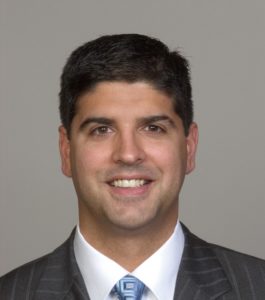

If you thought you had a clear read on how courts would interpret federal COVID-19 liability protections, think again. After a set back last fall, there appears to be some good news for providers after all.
In December 2020, I shared how a federal court in Pennsylvania ruled against a nursing home’s liability protection claim in Sherod v. Comprehensive Healthcare Management Services, LLC. In that case, the court decided a nursing home could not use immunity granted through the federal Public Readiness and Emergency Preparedness, or PREP, Act to fight a housekeeper’s COVID-19 wrongful death suit against the facility.
In Sherod, the court ruled PREP Act immunity for COVID-19 countermeasures did not apply because the plaintiff alleged a “failure” on the part of a nursing home to take action to protect its staff and residents.
But on Feb. 10, a federal court in the Central District of California ruled in favor of an assisted living facility and granted PREP Act immunity against a plaintiff who claimed the facility took inadequate safety measures to protect against COVID-19.
In Gilbert Garcia et al v. Welltower OpCo Group LLC, Sunrise Senior Living Management, Inc. et al, the complaint accuses the defendants of failing to take adequate measures to prevent the spread of COVID-19. The case was filed by the surviving sons of a former Sunrise resident.
In Garcia, the court ruled the plaintiff could not criticize the infection control, PPE and other measures taken by the assisted living facility because the facility was deemed a “Covered Person” under the PREP Act and was, therefore, afforded immunity for undertaking those countermeasures during the pandemic.
The plaintiff argued that PREP Act immunity only applied to emergency vaccine administration and not other policies, procedures and infection control programs associated with COVID-19, all of which could be the basis for a negligence claim. The plaintiff further argued that there are no guidelines from the Department of Health and Human Services that show a countermeasure covered under the PREP Act would include social distancing policies, infection control policies or employee restrictions in preventing the spread of COVID-19.
The court disagreed. Why? Mainly because the court recognized two significant HHS Office of the General Council advisory opinions on the PREP Act from October and January. In these opinions, HHS made it clear that even a nursing home’s failure to act as part of a program plan to combat COVID-19, could be part of a reasoned “countermeasure” that would afford a facility complete immunity under the PREP Act.
HHS advisories carry weight
The Court basically sided with HHS’ own interpretation, respecting that agency’s interpretation of the PREP Act among nursing homes and assisted living facilities.
Specifically, the Court and HHS recognized that resources during the pandemic were scarce. If, as part of a facility’s COVID-19 plan, a facility rationed resources or took only some countermeasures rather than all to effectively combat COVID-19, PREP Act immunity would protect those facilities against lawsuits.
That finding comes despite the earlier Sherod case and other plaintiffs that may argue a failure to act is not a “countermeasure” and is, therefore, outside the purview of the PREP Act’s protection:
“Where a facility has been allocated a scarce therapeutic purchased by the federal government and that facility fails to administer that therapeutic to an individual who meets the requirements of the FDA’s authorization, approval, or license, and whose physician prescribes that therapeutic, then the facility’s refusal to administer that therapeutic could still trigger the PREP Act assuming the non-use of the therapeutic was the result of conscious decision-making. However, the facility may still be liable under the PREP Act, if the plaintiff alleges that the decision to deny him or her the therapeutic was wanton and willful and resulted in death or serious injury…
Program planning inherently involves the allocation of resources and when those resources are scarce, some individuals are going to be denied access to them. Therefore, decision-making that leads to the non-use of covered countermeasures by certain individuals is the grist of program planning, and is expressly covered by PREP Act.”
— HHS Advisory Opinion 21-01, pp. 3-4.
What the Garcia case means for facilities practically is that all COVID-19 conscious decision-making by facilities should be documented, with real-time rationale as to why certain countermeasures were or were not taken. That will allow a facility to take maximum advantage of PREP Act immunity.
Nursing homes and assisted living facilities should take precautions to justify their COVID-19 policies and procedures, juxtaposed against any lack of resources that may or may not be available at the time. Doing this will help protect facilities by affording them the broad immunity of the PREP Act as interpreted by HHS and the Garcia case.
With the seemingly different approaches taken by the Sherod case and the Garcia case, it is likely that the question of PREP Act immunity among nursing homes and assisted living facilities will be subject to further decisions. For now, facilities should take Garcia as a clear victory, and hope other courts will follow its application of the PREP Act in favor of long-term care facilities as they continue to combat COVID-19. Stay tuned.
Neville M. Bilimoria is a partner in the Chicago office of the Health Law Practice Group and member of the Post-Acute Care And Senior Services Subgroup at Duane Morris LLP; [email protected].





